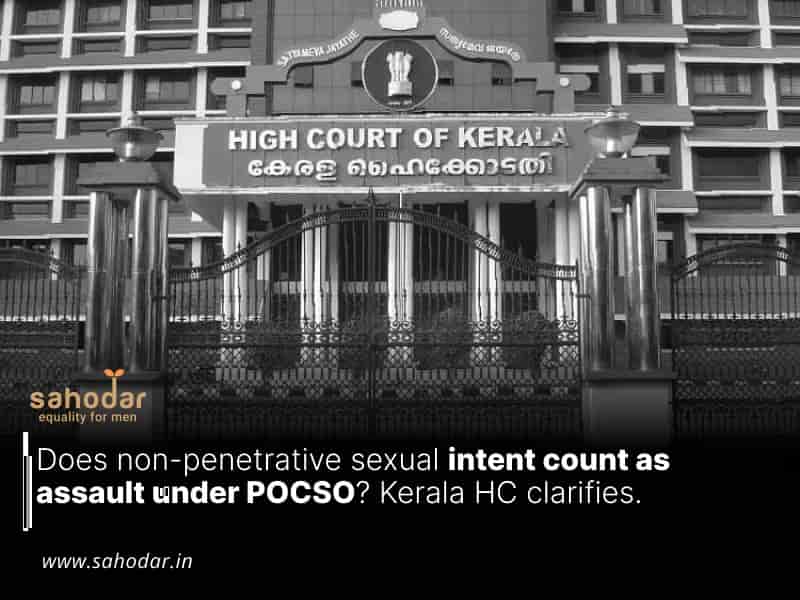The High Court agreed with a trial court’s view that if there is sexual intent behind physical contact, it would constitute sexual assault under the POCSO Act even if there is no penetration.
The Kerala High Court recently held that any act involving physical contact with a child with sexual intent constitutes sexual assault under the Protection of Children from Sexual Offences Act, 2012 (POCSO Act), even in the absence of penetration [Ajith Prasad Edacherry v. State of Kerala].
This observation came as the Court refused to discharge a teacher accused of sexually assaulting a first-standard student under the POCSO Act.
Justice A. Badharudeen noted that the allegations, on a prima facie basis, indicated sexual intent in the teacher’s actions, meeting the criteria for sexual assault as defined in Section 7 of the Act.
“Dividing the act of sexual assault, the legislature dealt with three instances (in Section 7 of POCSO Act). The third part is, doing any other act with sexual intent which involves physical contact without penetration. Then the said overt act alone is also sexual assault for the purpose of Sections 9(f),(m) and 10 under the POCSO Act. Here, the accused who is the teacher of the victim, brought him to the staff room and the accused had caused physical contact on the child victim by lying the child upon his body, while he also was lying on the desk. Therefore, the overt acts at the instance of the accused would show physical contact between the minor child and the accused,” the Court added.
A 58-year-old teacher at St. Paul’s AUP School was accused of bringing a minor student to the staff room and coercing him to lie on the teacher’s body. It was further alleged that the teacher assaulted the student when he initially resisted.
The incidents reportedly happened multiple times, with the victim eventually complying out of fear of further harm.
A special court eventually charged the accused teacher under Sections 9(f) (sexual assault by an educational or religious institution staff member), 9(m) (sexual assault on a child under 12 years), and 10 (punishment for aggravated sexual assault) of the POCSO Act.
The special court also invoked Sections 29 and 30 of the POCSO Act, which presume the accused’s guilt unless proven otherwise and establish the presence of a culpable mental state.
Challenging the trial court’s decision, the accused filed a revision petition before the Kerala High Court, seeking discharge from the case.
The State opposed the plea, asserting that the actions described in the complaint clearly met the definition of sexual assault under Section 7 of the POCSO Act. It was emphasized that the accused teacher’s repeated behavior demonstrated sexual intent, justifying the framing of charges under the Act.
In contrast, the counsel for the accused argued that the prosecution’s allegations lacked adequate evidence to substantiate the offences.
The Court emphasized the wide scope of Section 7 of the POCSO Act, which includes not only touching private parts but also ‘any other act with sexual intent’ involving physical contact.
Relying on the presumption under Section 30 of the Act, the Court noted that it was the accused’s responsibility to disprove the existence of a culpable mental state. It concluded that the evidence provided was sufficient to proceed with the trial under the POCSO Act.
“Thus, this Court could not hold from the records that, offences punishable under Sections 9(f),(m) and 10 of the POCSO Act are not made out, prima facie to frame charge and to proceed with trial. Therefore the order impugned dismissing the discharge plea at the instance of the petitioner/accused does not require any interference,” the High Court said while upholding the trial court’s view in the matter.
As a result, the Court rejected the plea for discharge.

